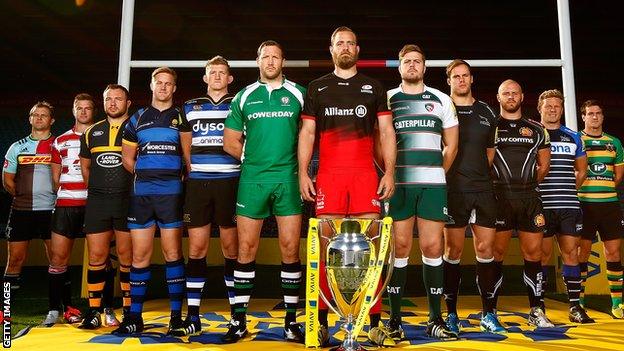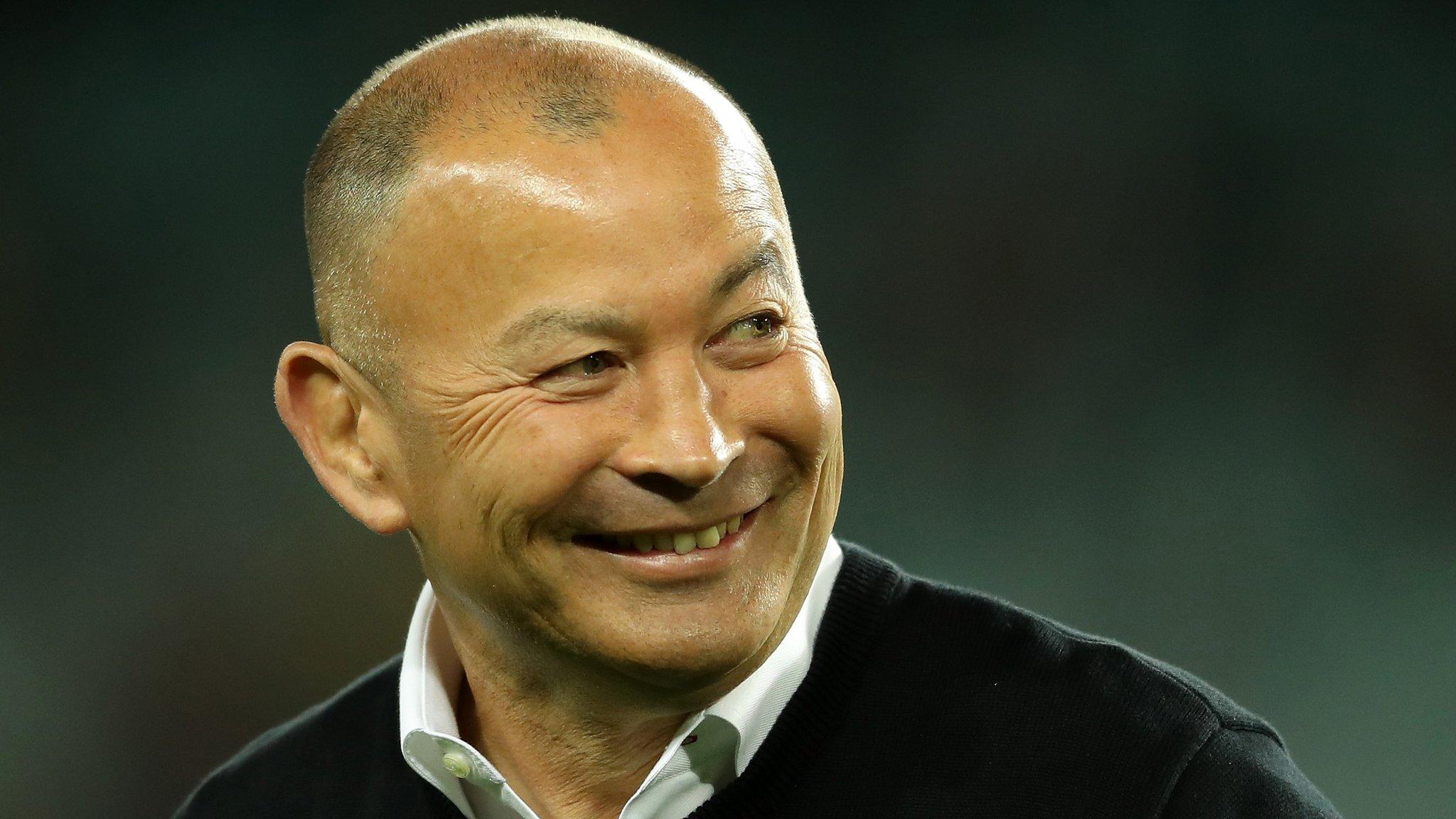Premiership Rugby to monitor players' wages after new RFU deal
- Published

The Premiership clubs' salary cap is currently set at £6.5m for the 2016-17 season
Premiership Rugby chief executive Mark McCafferty says the league must monitor player wage inflation at England's top-flight clubs.
On Monday, the Rugby Football Union and Premiership clubs signed new agreement in excess of £225m.
However there are fears among some club bosses that extra revenue coming into the game will result in a drastic escalation in players' salaries.
"We have to strike the right balance on that," McCafferty told BBC Sport.
"We have to watch it, manage it, and be careful with it.
"There are concerns because we have to make sure that each club prospers over the next few years. It has to be financially sustainable."
McCafferty is confident the increase in funding will be spread evenly across the game.
"There is significantly more investment going into the academies, and there is also a recognition of all of the rest of the infrastructure which clubs have been producing," he added.
"There is not as much of an increase going into player-related payments as there is going into other elements. So in that sense it's the right balance."
Discussions will take place this autumn about the future levels of the Premiership Rugby salary cap, which is currently at £6.5m for the 2016-2017 season, and £7m for the following campaign.
Gloucester chief executive Stephen Vaughan, external and Leicester chief executive Simon Cohen have both voiced their concerns about the effects of a constantly rising cap.
But McCafferty said: "We have always linked our salary cap framework to the level of revenue we are producing.
"So we need to take a look at that again, with the benefit of knowing we have our RFU agreement in place.
"The salary cap should develop as the club game develops, so the clubs can be financially sustainable, and also the players get well rewarded, because they are central.
"We have to make sure they are well taken care of, but in a way that is sustainable for the clubs."
- Published25 July 2016

- Published26 July 2016

- Published13 May 2016

- Published3 February 2017

- Published15 February 2019
